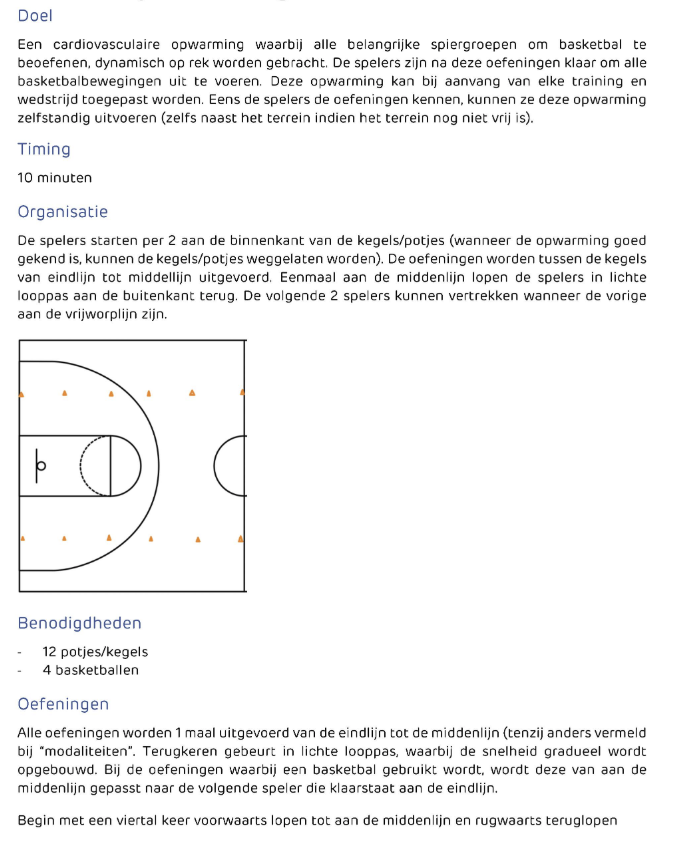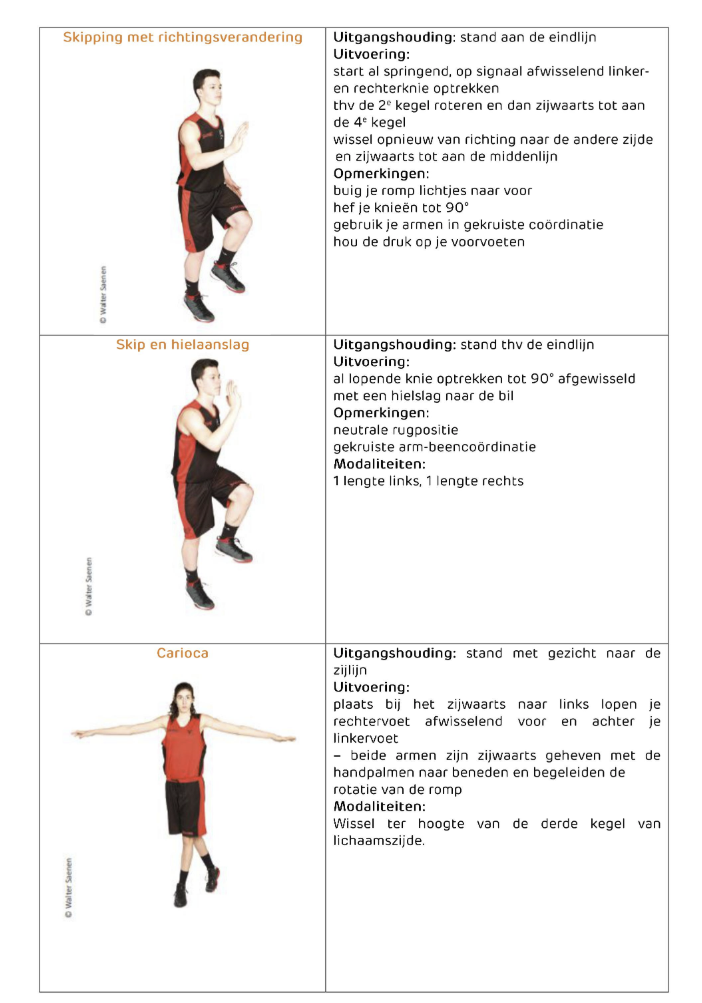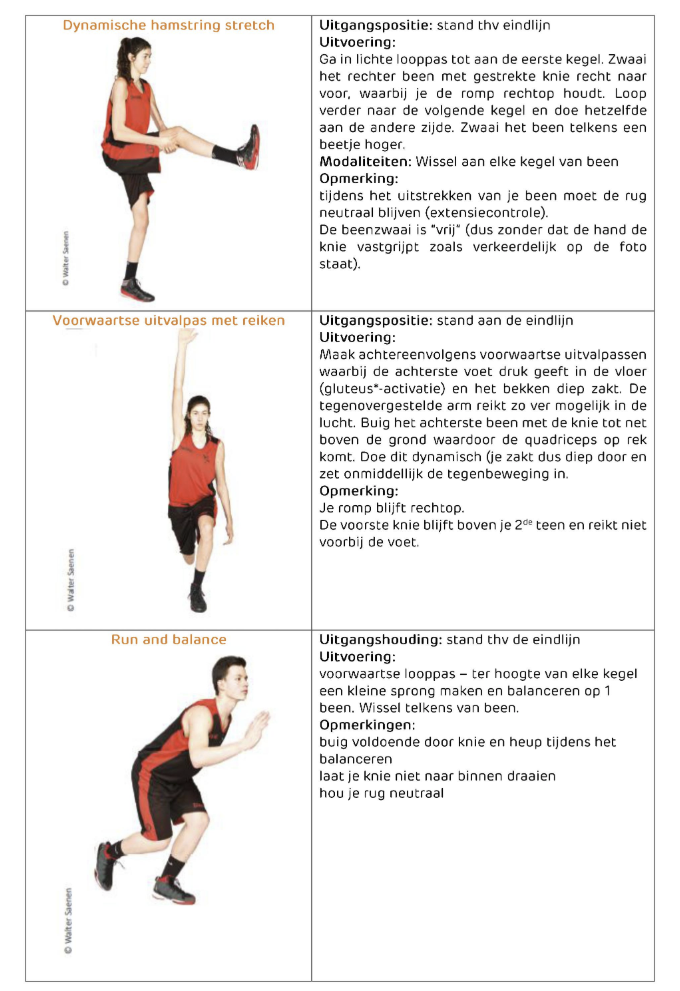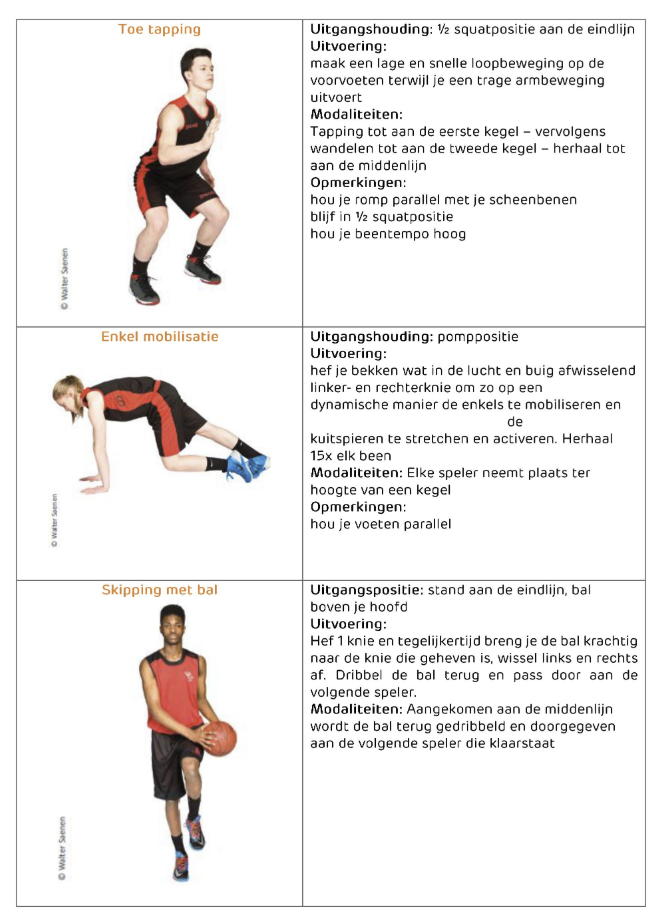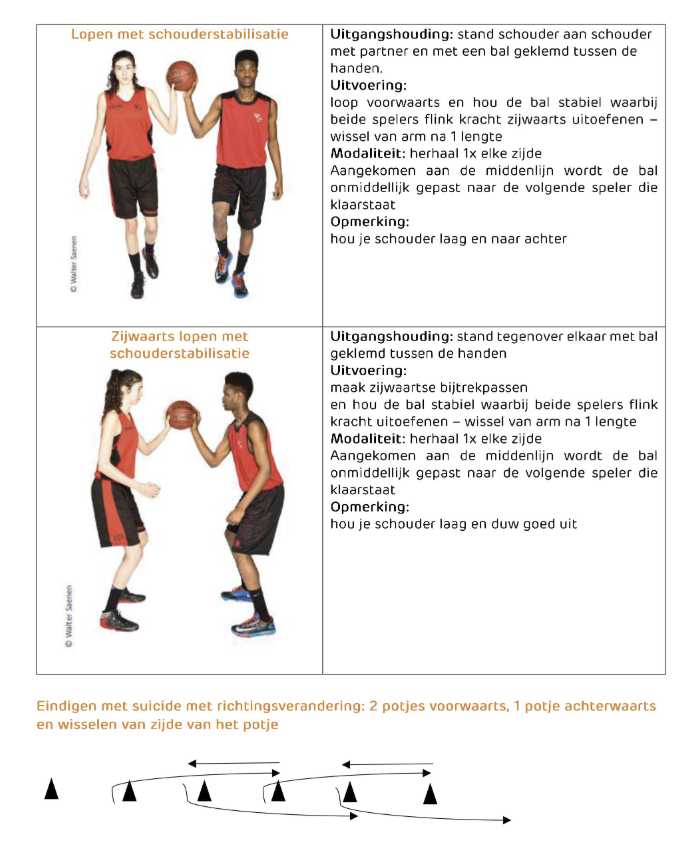Basketball drills
- The players line up behind each other.
- The aim is to pass the ball through your legs to the other player.
- When you have passed the ball, you stand behind each other.
- The goal is to be the first team to reach the other side.
- 2 sides off the court.
- Leftside/right hand lay-up.
- Dribble to pilon. Dribble backwards.
- Dribble to pilon 2.
- Twice between the legs.
- Dribble to pilon 3.
- Pivot to right hand and finish with a lay-up front basket.
- Rebound your own ball.
- Rightside/left hand lay up.
- Dribble to pilon 1.
- Crossover twice.
- Dribble to pilon 2.
- Behind the back (left and/or right).
- Dribble to pilon 3.
- Jumpstop.
- Big step with inside leg to the basket.
- 1 ball per player.
- Fastbreak, ball over midcourt, defender on midcourt touches circle and joins defence.
- Goal, quick execution fastbreak. (Before 3rd defender joins) 1 try.
- Row A, half number of players.
- Left side ashes half.
- Pawn at three-point line on left side of field.
- Spindribble right, coming out on top of bucket set or jumpshot.
- Finish with jump stop, around your man (pawn), right hand without board from in front of the basket.
- Row B, half number of players.
- Right side of the field.
- 1st pawn cross dribble left/right, 2nd pawn reverse dribble, 3rd pawn 2x through legs.
- One on one till midcourt average speed.
- Goal: Slides defender.
- From 1m over midcourt.
- One on ne to the basket. 1 shot.
- Score by offense, offense stays offense
- First to 4.
- Row A, half number of players. Left side axis half.
- Pawn at three-point line on left side of field. Spindribble right, coming out at head of bucket set or jumpshot.
- Finish with jump stop, around your man (pawn), right hand without board from in front of the basket.
- Row B, half number of players. Right side of the court.
- 1st pawn cross dribble left/right, 2nd pawn reverse dribble, 3rd pawn 2x through legs.
- Have the players stand a little closer together and throw up with a bounce.
- As exercise throw and catch, but pass the ball a little higher, not so high that you have to jump, so just above the head.
- Pay special attention to the catching and the position of the thumbs, a little closer together than in exercise 1.
- The ball is held at the side with relaxed and spread fingers.
- the palms of the hands must not touch the ball.
- The thumbs are behind the ball;
- the thumbs are behind the ball, and imaginary lines are drawn along the length of the thumbs,
- Then they must cross in the 'heart' of the ball. .
- the elbows are bent beside the body; the points are pointing to the ground.
- the ball is held in front of the diaphragm.
- in the face of an aggressive defender, the ball is brought up over the head or towards the hip;
- in the latter case, one foot is placed in the direction of the opponent;
- the elbows are slightly spread.
- feet in parallel position; ball in both hands in front of chest.
- eyes focused on the goal.
- Step with the left foot in the direction of the pass,
- so that the left side of the body comes in front (turning in);
- At the same time, the ball is brought behind the head with both hands;
- the body weight rests on the back leg.
- The elbow is under the ball;
- the angle between the upper and lower arm is about 90 degrees;
- the fingers of the throwing hand are spread.
- next: turn your hips and trunk to the left;
- the left hand will lose contact with the ball and is held horizontally to protect the action;
- the elbow is bent.
- The right arm swings in a straight line past the head in the direction of the goal; the movement ends with the wrist being folded over.
- The right arm swings in a straight line along the head towards the target; the movement ends with the flick of the wrist; the ball is pointed after by the throwing arm,
- while the wrist hangs down in a relaxed position.
- During the action, the body weight is transferred to the front foot.
- Players stand in a circle; pass the ball to your neighbour; after the ball has gone round several times, bring another ball into the circle.
- Depending on the number of players add more balls.
- Variation: the players stand alternately facing or with their backs to the circle.
- Horizontal circles; the ball is passed sideways to the partner, who gives the ball back on the other side.
- Vertical circles; passing the ball above the head, accepting it between the legs.
- Eight circles; the ball is passed between the players; turn against each other; after receiving, pass the ball in front of the body to the other side.
- As previous exercise; perform with arms extended.









